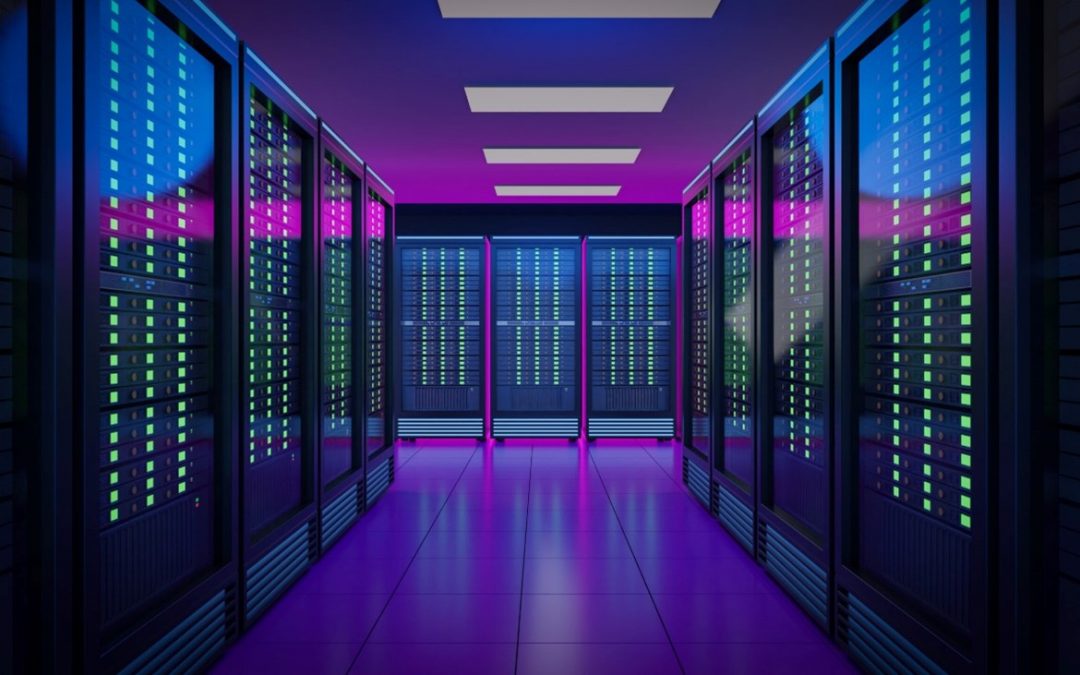During the Covid-19 pandemic, the demand for data grew exponentially and continues, daily, to increase due to the rapid digitalization caused by social isolation and now by the hybrid models of work and consumption.
The Data Centers, responsible for the storage and processing of trafficked data, which consume 01% of the global electricity demand and emit about 0.3% of all CO2 released in the world, according to the International Energy Agency (IEA), are approaching the center of the global debate on sustainability, being a very sensitive point when faced with the increasingly demanding criteria of ESG (Environmental, Social and Corporate Governance).
According to a recent survey by Persistence Market Research, the Green Data Center market, or Sustainable Data Center, is expected to have a growth rate (CAGR) of 14.3% in the coming years, which represents US$ 266.6 billion. until 2032.
The cost of building this type of model is higher than the cost of building a typical data center, despite having a lower total cost of ownership (TCO) and saving money in the long run, the biggest capital investment is still seen as a major constraint on the market.
So what is your reason for growth?
In January 2021, industry representatives sought, for the first time, to implement targets to achieve carbon neutrality in Europe in support of the European Data Strategy and the European Green Agreement, forming the Self-Regulation Initiative and the Compact between Data Center Operators. with Climate Neutrality, which set measurable and ambitious goals for 2030, such as:
- Improve energy use efficiency
- Buy 100% carbon-free energy
- Water conservation through the selection of efficient and appropriate cooling solutions
- Recycling of servers, electrical equipment and other related electrical components
- Reuse of heat generated in data centers, where possible, in an ecologically sensible and cost-effective manner
The Pact's initiatives go hand in hand with the growth of ESG actions in the most diverse segments, thinking about sustainability, from the environmental, economic and social tripod, where strategies alone bring a positive impact to the companies that adopt them, expanding its competitive advantage allied to a better efficiency of the operation, in addition to undeniable benefits for the improvement of the environmental and social quality, in which it is inserted.
We can highlight some important aspects of ESG measures with a focus on the Data Center environment, such as planning an environmentally correct construction; Use of 100% renewable energy, such as wind, solar, hydropower; Improved energy efficiency with a focus on reducing PUE (Power Utilization Effectiveness); Decreased energy consumption, taking as an example server virtualization and use of gas to reduce cooling consumption. Currently, Infra IES has been developing a conceptual project to build a model of a Data Center in a container in the USA using a propane gas generator; And the final disposal of electronic waste in appropriate landfills.
In addition to the pacts already adopted in Europe, the USA has stood out as an investor in renewable energy and sustainable innovations, with companies such as Apple, Facebook (Meta), Amazon Web Services, Google and Microsoft continually investing in renewable energy to power their facilities and become carbon neutral. Followed by Canada, with high investments from colocation providers and hyperscale data center operators, it is a growing market due to the accessibility to renewable energy sources and low energy costs of around US$0.05 per kWh. Ontario, a province in east-central Canada, is a hub of Data Centers, followed by Quebec, on the banks of the Saint Lawrence River, in the Canadian province, which has abundant availability of renewable energy.
Another important point within the ESG perspective is the social aspect of methodology, which is why the high investment in anti-corruption strategies, accountability with transparency, diversity, inclusion and equity programs, qualification and training of employees, relationship with communities and stakeholders and privacy and data protection (LGPD), which must go through detailed reports, sharing good practices in order to avoid green washing, an English term used to talk about marketing strategies to promote sustainable speeches, actions and advertisements that do not are sustained in practice and that go in the opposite direction to ESG and can cause irreparable damage to a company's image.
In short, Green Data Centers provide data storage in an environmentally friendly manner while mitigating total operating expenses. Several governments are working to encourage this eco-responsible, energy-efficient and cost-effective business model. As a result, strict environmental regulations that require energy conservation will increase demand and drive the market for liquid cooling and natural gas.
What are your company's sustainability strategies/actions?
Share with us!
Ivy Panagassi, Coordenadora Administrativa da Infra IES

